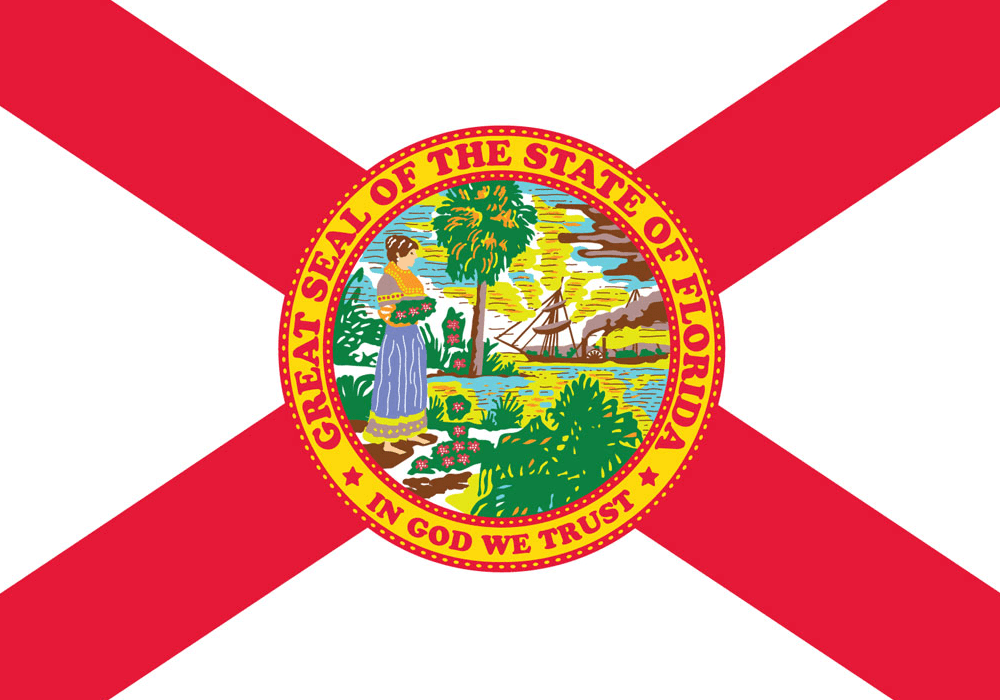FL. R. Civ. P. 1.070
Committee Notes
1971 Amendment.
Subdivisions (f), (g), and (h) of the existing rule are combined because they deal with the same subject matter. The “notice of suit” is changed to “notice of action” to comply with the statutory change in 1967. Subdivision (g) is new and provides for substitution of a certified or verified copy of a court order that must be served. The original is to be filed with the clerk and not removed. Subdivision (i) is relettered to (h).
1972 Amendment.
Subdivision (a) is amended to require the officer issuing the process to sign it and place the court seal on it. This was required by former section 47.04, Florida Statutes, and is essential to the validity of process. When the statute was repealed these procedural requirements were omitted and inadvertently not included in the rule. Subdivision (b) is changed to eliminate the predicate for court appointment of a person to make service of process. This makes the rule more flexible and permits the court to appoint someone to make service at any appropriate time.
1980 Amendment.
Subdivision (i) is added to eliminate pleading evidentiary facts for “long arm” service of process. It is based on the longstanding principle in service by publication that pleading the basis for service is sufficient if it is done in the language of the statute. See McDaniel v. McElvy, 91 Fla. 770, 108 So. 820 (1926). Confusion has been generated in the decisions under the “long arm” statute. See Wm. E. Strasser Construction Corp. v. Linn, 97 So. 2d 458 (Fla. 1957); Hartman Agency, Inc. v. Indiana Farmers Mutual Insurance Co., 353 So. 2d 665 (Fla. 2d DCA 1978 ); and Drake v. Scharlau, 353 So. 2d 961 (Fla. 2d DCA 1978 ). The amendment is not intended to change the distinction between pleading and proof as enunciated in Elmex Corp. v. Atlantic Federal Savings & Loan Association of Fort Lauderdale, 325 So. 2d 58 (Fla. 4th DCA 1976 ). It is intended to eliminate the necessity of pleading evidentiary facts as well as those of pecuniary benefit that were used in the Elmex case. The amendment is limited to pleading. If the statutory allegations are attacked by motion, the pleader must then prove the evidentiary facts to support the statutory requirements. If denied in a pleading, the allegations must be proved at trial. Otherwise, the allegations will be admitted under rule 1.110(e).
1988 Amendment.
Subdivision (j) has been added to require plaintiffs to cause service of original summons within 120 days of filing the complaint absent good cause for further delay.
1992 Amendment.
Subdivision (d) is repealed because the reason for the rule ceased when process was permitted to run beyond county boundaries. The amendment to subdivision (j) (redesignated as (i)) is intended to clarify that a dismissal under this subdivision is not to be considered as an adjudication on the merits under rule 1.420(a)(1) of these rules.
1996 Amendment.
Subdivision (i) is added to provide some formality to the practice of requesting waiver of service of process by a sheriff or person appointed to serve papers or by publication. The committee intends that only the manner of service will be waived by this procedure. By accepting service pursuant to this rule, the defendant will not waive any objection to venue or jurisdiction over the person or admit to the sufficiency of the pleadings or to allegations with regard to long-arm or personal jurisdiction. For example, service of process would be void should a motion to dismiss be granted because the complaint did not allege the basis for long-arm jurisdiction over a nonresident defendant. City Contract Bus Service, Inc. v. H.E. Woody , 515 So. 2d 1354 (Fla. 1st DCA 1987 ). Under such circumstances, the defendant must be served pursuant to law or again waive service pursuant to this rule. Subdivision (i)(2)(F) allows the defendant 20 days from receipt (or 30 days if the defendant is outside of the United States) to return the waiver. Accordingly, the committee intends that the waiver be received by the plaintiff or the plaintiff’s attorney by the twentieth day (or the thirtieth day if the defendant is outside of the United States). The former subdivision (i) has been redesignated as subdivision (j). Form 1.902 may be used to give notice of an action and request waiver of process pursuant to this rule.
2003 Amendment.
Subdivision (j) is amended in accordance with Totura & Co., Inc. v. Williams , 754 So. 2d 671 (Fla. 2000). See the amendment to rule 1.190(a).

